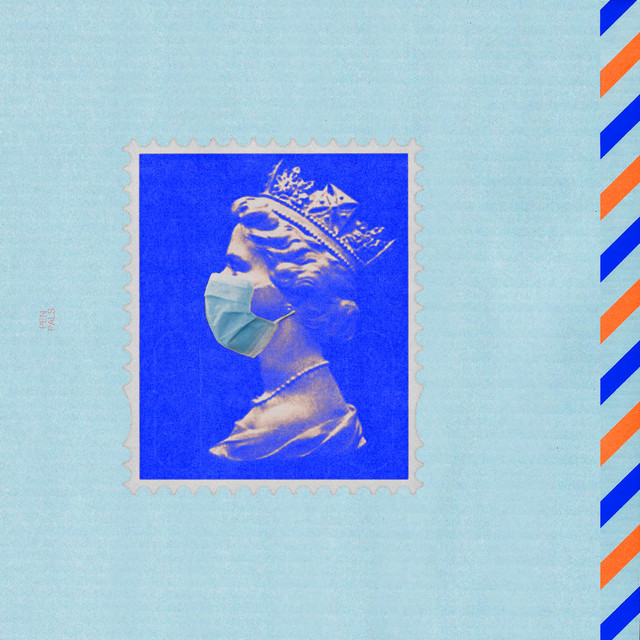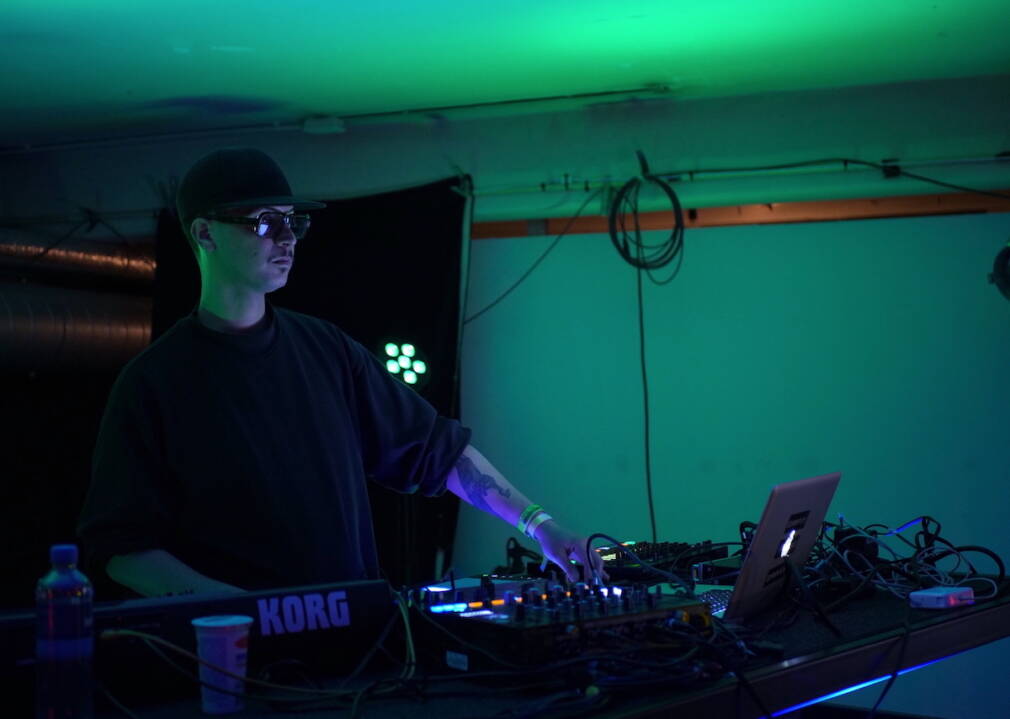PAM met Cheb Runner at The Hague’s 2022 Rewire festival, an artist building bridges between a musical past and electric future through the eyes of an angry immigrant bent on unifying the public through dance.
We met Reda Senhaji aka Cheb Runner in The Hague for the Rewire Festival. He was dressed in all black from his hat down to his toes. We found a quiet spot amidst the midday activity of professionals and party goers getting ready for Saturday night festivities. Before sitting down to chat, Cheb pulls out a wooden box and opens it up to reveal some black wraparound motorcycle shades that he throws on as we begin our conversation. Tonight he was on deck to put on an interactive live performance including virtual reality projections by visual artist Salim Bayri and freestyle traditional keys and pads. Cheb Runner’s work sits comfortably between heritage and hereafter, combining gnawa and oriental melodies with the dark ambiance of modern club sounds. His 2020 Tagnawit EP plays on the smoother side of the spectrum while his follow-up single “Air Maghrib” touches closer to the techno flavor of his club sets. “The sound is a mix between, let’s say, EDM, Gabber, and traditional music. Most of the time I take traditional rhythmics and then I put some effects on and try to color it; give another vibe to it. Another kind of, how you say, quality…” Cheb explains.
“When I grew up in Morocco,” Cheb continues. “I was with friends, skateboarding, surfing and we were listening to drum and bass, psytrance, techo, hip-hop…because skaters, they can switch between rock, hip hop, electronic, everything. We don’t have these borders, right?” Native to Agadir, Morocco, Cheb has little reverence for borders. In fact, the night’s show was called Angry Immigrant, an homage to immigrants making the treacherous and sometimes deadly trip across the Mediterranean from North Africa. Immigrating is something Cheb has some personal experience with. “This show, Angry Immigrant, comes from my experience in Belgium“, he begins “I spent 10 years there and during this period I was faced with many problems… personal ones, social issues and integration struggles, papers, you know? And once you solve those problems, then we come to the problems of community.” Exasperated, he put his hands in the air. “Let’s talk together. Let’s dance together. Let’s do that together,” he offers as a solution. “When I play DJ sets it’s uniting. Dancing, dancing, dancing, dancing, and sweating and dancing, sweating. That’s it!”
It’s a music that’s easy to dance to. His show starts out with a low key-note and slips into improvisations on oriental scales. That is until he moves to the drums and bass that incorporate traditional rhythms and heavy synths. “I learned the Oriental scales by myself because they were already in my subconscious. I grew up with it, so when I touched it (the keys) for the first time, I knew these notes fit with each other. No academic background, it was just spontaneous,” says Cheb of his music. “Then there are packages of styles,” Cheb elaborates, “Each country has its own kind of samples that you can find just by fucking around with people that you know, or talking with them through internet, or going there to record it.” Concluding, “On the other hand there are my traditional instruments that I pick up from everywhere and record.” It’s a devastating cacophony that creates moments of ecstatic joy and face-punching sonics. Woops and wolps were a’plenty during the show full of habibi cries, tongue-wags, zaghroutas, and ululations. Cheb himself is a fist-pumping and head-bobbing with a violent musical surrender. “I just want to do something spontaneous,” he admits.
Finding method in the madness one needs to zoom-out to Cheb’s work on the ground. Now, Cheb Runner, Reda Senhaji has been circulating on the art scene for over 10 years under different pseudonyms. Always recording, moving through collectives, Cheb’s North Star seems to be holding together the musical past and present. He’s currently doing work with the aptly named Heritage Studios. “Heritage Studios is about diving into heritage and how we can preserve it in the digital age,” Cheb explains. More than just a studio, it’s “a platform for research, music and design where WANA (West Asian & North African) diaspora artists can explore their cultural heritage and its meaning in this digital world.” For Cheb, it’s about, “how we can use that heritage to make it interesting. Not interesting, because it’s already interesting. To bring it closer to people and keep it as long as possible.”
So far, Cheb Runner has been doing his part on-stage and off. Idolizing the likes of Algerian Karim Ziad and Moroccan Mehdi Nassouli who have brought North African music to a wider audience and broader popularity by combining it with a jazz fusion. “This guy is fucking genius on drums,” Cheb said of Karim Ziad with deadly seriousness. And while this all remains instrumental and abstract, a work for aficionados and the obsessed, Cheb believes there is meaning in it all, even if it’s not explicit. “We can say there is no message, but there is always a message,” Cheb says. “Sometimes I cannot be vocal about it. I just want to create it. To make it musical.” There we can agree. Let the discs spin and the record show.
Listen to “Air Maghrib” in our afro + club playlist on Spotify and Deezer.





